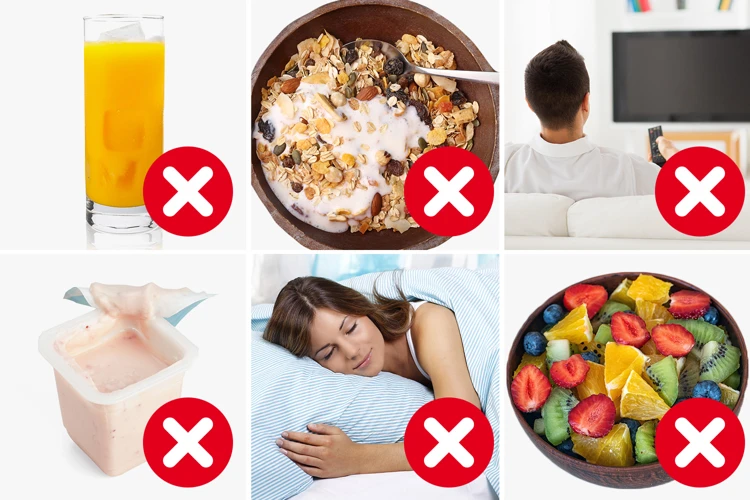With the rise of unhealthy snacking habits and obesity rates, people are becoming more aware of the importance of healthy snacking when trying to lose weight. However, it can still be challenging to choose snacks that are both satisfying and healthy. Many people make common snack mistakes when trying to lose weight that can hinder their progress. In this article, we will explore the top five snack mistakes to avoid, and provide alternatives and tips for making healthy snacking choices. So, let’s dive in and learn how to snack smartly!
Mistake #1: Choosing Snacks High in Calories
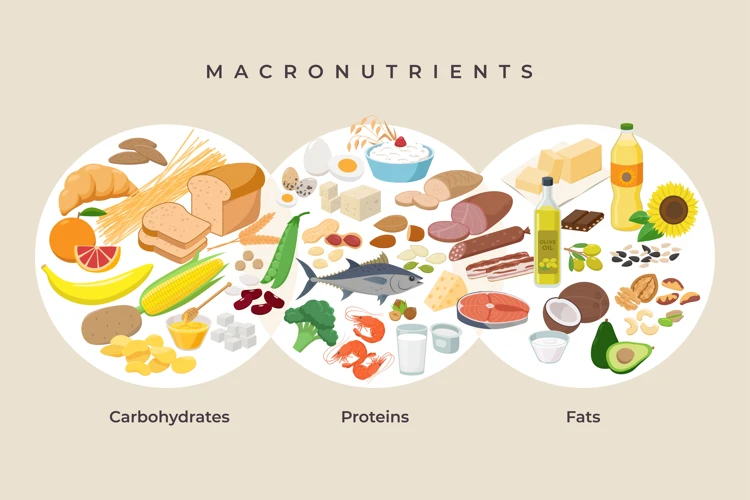
When it comes to snacking, many people fall into the trap of choosing options that are high in calories. It’s easy to get lured in by tasty treats, but consuming too many calorie-dense snacks can quickly derail your weight loss goals. In this section, we’ll explore the first common snack mistake that people make and offer alternative options that can help you stay on track. So, what exactly is the problem with high calorie snacks? Let’s take a closer look.
Explanation of why high calorie snacks are bad
High calorie snacks can be detrimental to weight loss goals for several reasons. Firstly, these snacks tend to be high in added sugars and saturated fats which can lead to weight gain and increase the risk of various health problems like heart disease and diabetes. Additionally, these snacks often do not provide a lot of satiety, meaning you can consume a lot of calories without feeling full. This can lead to overeating and consuming more calories than necessary, hindering weight loss progress.
Consuming high calorie snacks regularly can also impact one’s overall health by disrupting the nutrient balance in the body. If you are snacking on high calorie foods that lack important vitamins and minerals, you may be missing out on essential nutrients that are necessary for maintaining overall health.
It is best to avoid high calorie snacks as part of a weight loss plan, and instead opt for healthier, lower calorie alternatives.
Alternatives to high calorie snacks with examples
If you’re trying to lose weight, choosing low calorie snacks is crucial. Here are some alternatives to high calorie snacks with examples:
| High Calorie Snacks | Low Calorie Alternatives |
|---|---|
| Chips | Carrot sticks or celery with hummus |
| Cookies | Apple slices with almond butter |
| Chocolate Bars | Dark chocolate-covered almonds |
| Ice Cream | Greek yogurt with berries and a drizzle of honey |
| Candy | Fruit salad with a sprinkle of cinnamon |
Tip: Be sure to read nutrition labels and check the serving size before selecting your snack. Even healthy snacks can become high calorie if eaten in large amounts.
Mistake #2: Not Paying Attention to Serving Size
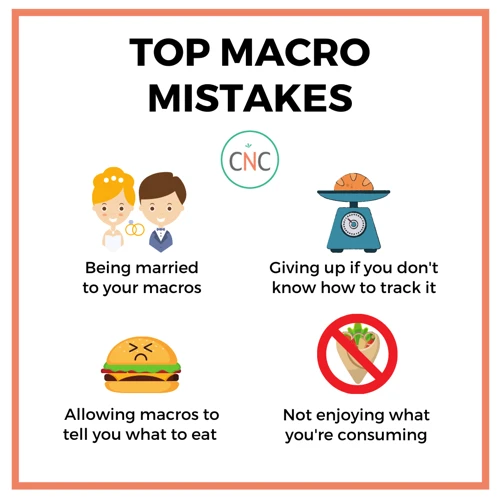
It’s easy to mindlessly munch on snacks, but did you know that not paying attention to serving size could be a major roadblock in your weight loss journey? It’s a common mistake that many of us make, but one that can have a significant impact on our calorie intake. Understanding how serving size can affect your snack choices is crucial to achieving your weight loss goals. Let’s take a closer look at why serving size is important and how you can measure it to make more informed snack choices.
Explanation of serving size importance and how to measure it
One important snack mistake to avoid when trying to lose weight is not paying attention to serving size. Serving size is the amount of food recommended by the USDA as a standard portion. Eating too much even of a healthy food can lead to weight gain. It is crucial to measure serving size and stick to it.
To measure serving size, use measuring cups, spoons, or a food scale. For example, one serving of nuts is typically measured as a quarter cup or a small handful. One serving of fruit is usually a medium-size piece, like an apple or banana, or a cup of berries. One serving of crackers is usually around 10-15 pieces. If a food item doesn’t have measurements on the package, use online resources or consult with a nutritionist or dietitian for guidance.
Eating proper serving sizes can help control calorie intake and prevent overeating. It is crucial to be mindful and pay attention to serving sizes, especially when snacking on calorie-dense foods like nuts, cheese, and chocolate. Remember, eating snacks in moderation is key to maintaining a healthy weight.
Examples of snacks with recommended serving sizes
Proper portion sizes are key to successful weight loss. Here are some examples of snacks with recommended serving sizes:
| Snack | Serving Size |
|---|---|
| Almonds | 1/4 cup (about 23 almonds) |
| Greek Yogurt | 1 individual container (about 5.3 ounces) |
| Apple | 1 medium apple (about 3 inches in diameter) |
| Carrots | 10 baby carrots (about 3 ounces) |
| String Cheese | 1 stick (about 1 ounce) |
| Dark Chocolate | 1 ounce (about 6 small squares) |
It’s important to note that even healthy snacks can contribute to weight gain if consumed in excess. Measuring out proper portion sizes can help prevent overeating and aid in weight loss goals. Additionally, pairing snacks with a source of protein or fiber can help keep you feeling full and satisfied between meals.
Mistake #3: Not Considering Nutritional Value
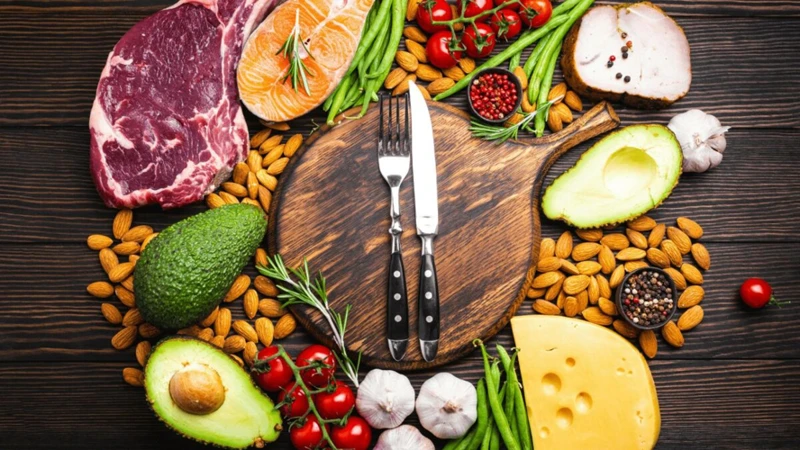
When it comes to snacking while trying to lose weight, many people make the mistake of only focusing on the calories in the snack. However, it is important to also consider the nutritional value of the snack. Ignoring the nutritional value of snacks can lead to nutrient deficiencies and cravings, which can sabotage weight loss efforts. Let’s explore why nutritional value is important when choosing snacks and some examples of snacks with high nutritional value.
Explanation of why nutritional value is important in snacks
When it comes to choosing snacks, it’s not just about the number of calories, but also about the nutritional value. Nutritious snacks can provide the body with essential nutrients like fiber, protein, vitamins, and minerals that help keep us feeling full and satisfied. A snack that lacks nutritional value may leave us feeling unsatisfied and craving more food.
One way to ensure a snack has nutritional value is to look for options that are less processed and contain whole foods. Whole foods are foods that are minimally processed or unprocessed and contain no added chemicals or preservatives. These types of snacks provide the body with the nutrients it needs without added sugars, sodium, or unhealthy fats.
Another way to get snacks with nutritional value is to choose options that contain protein and/or fiber. Protein helps keep us feeling full and satisfied, while fiber helps regulate digestion and can also help keep us feeling full. Examples of high protein snacks include nuts, seeds, Greek yogurt, and jerky, while high fiber snacks include fresh fruits and vegetables, popcorn, and whole grain crackers.
Lastly, vitamins and minerals are also essential for the body’s overall health and well-being. Snacks that contain these essential nutrients can help boost the immune system, improve cognitive function, and support healthy bones and skin. Examples of snacks high in vitamins and minerals include berries, carrots, almonds, and salmon.
To summarize, choosing snacks with nutritional value not only helps keep us feeling full and satisfied, but it also provides the body with essential nutrients needed for overall health and well-being. Incorporating whole foods, protein, fiber, vitamins, and minerals into snacks can help ensure a well-rounded diet.
| Nutrient | Examples |
|---|---|
| Protein | Nuts, seeds, Greek yogurt, jerky |
| Fiber | Fresh fruits and vegetables, popcorn, whole grain crackers |
| Vitamins and Minerals | Berries, carrots, almonds, salmon |
Examples of snacks with high nutritional value (fiber, protein, vitamins, etc.)
When it comes to choosing healthy snacks, it is important to consider their nutritional value. Here are some examples of snacks that are full of important nutrients:
| Snack | Nutrients |
|---|---|
| Greek yogurt | High in protein, calcium, and probiotics |
| Apple slices with almond butter | Good source of fiber, healthy fats, and protein |
| Hummus with carrots and cucumber | Provides fiber, protein, and vitamins |
| Trail mix | Contains healthy fats, protein, and fiber |
| Hard-boiled eggs | Good source of protein and essential vitamins and minerals |
| Edamame | Provides plant-based protein, fiber, and essential vitamins and minerals |
These snacks are nutritious and satisfying, making them great choices for anyone trying to lose weight or simply maintain a healthy diet. It is important to note that portion control is still key, even with healthy snacks. Stick to recommended serving sizes and always listen to your body’s hunger and fullness cues.
Mistake #4: Skipping Snacks Altogether
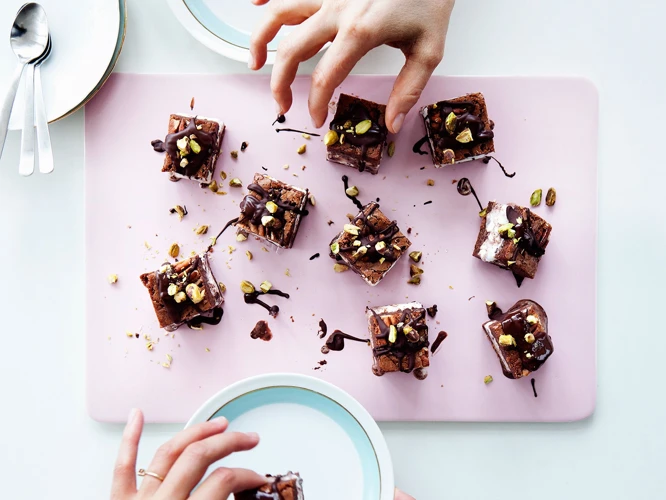
Many people believe that skipping snacks altogether can contribute to weight loss. However, this is one of the biggest misconceptions when it comes to healthy eating habits. Skipping snacks can actually have negative effects on our metabolism and lead to overeating later on. In this section, we will discuss the importance of snacks in our diet and provide some healthy snack options to prevent skipping and overeating.
Explanation of the negative effects of skipping snacks
Skipping snacks altogether may seem like a good idea when trying to lose weight, but it can actually have negative effects on your diet and overall health. Here are some reasons why:
- Increased hunger: When you skip snacks, you may find yourself feeling hungrier at mealtimes and more likely to overeat. This can lead to consuming more calories than necessary, making it harder to reach your weight loss goals.
- Decreased energy: If you go too long without eating, your blood sugar can drop, which can leave you feeling fatigued, weak, and less focused. This can affect your ability to exercise and be productive throughout the day.
- Slower metabolism: Eating regular, healthy snacks can help to maintain a steady metabolism, which is important for burning calories and maintaining a healthy weight. When you skip snacks, your body may start to slow down its metabolism in response to the lack of food, making it harder to lose weight in the long run.
- Inadequate nutrition: Skipping snacks can mean missing out on important nutrients that your body needs to function properly, such as protein and fiber. This can lead to deficiencies and negative health consequences over time.
It is important to incorporate healthy snacks into your diet to avoid these negative effects and achieve your weight loss goals in a sustainable way.
Examples of healthy snacks to prevent skipping and overeating later on
One of the biggest mistakes people make when trying to lose weight is skipping snacks altogether. However, skipping snacks can actually lead to overeating later on. That’s why it’s important to choose healthy snacks between meals to keep your metabolism going and prevent binging.
Here are some examples of healthy snacks to prevent skipping and overeating later on:
| Snack | Description |
|---|---|
| Fruit Salad | A bowl of mixed fruits such as berries, apples, and oranges serves as a great source of fiber and antioxidants. |
| Vegetable Sticks and Hummus | Sliced veggies such as celery, carrots, and bell peppers with a side of hummus are a great source of fiber, protein, and healthy fats. |
| Greek Yogurt and Granola | Plain Greek yogurt with a sprinkle of granola and some fruit or honey is a great source of protein and carbohydrates. |
| Nuts | A handful of nuts such as almonds, cashews, or walnuts are a great source of healthy fats and protein. |
| Boiled Eggs | A boiled egg is a great source of protein and minerals such as iron and vitamin D. |
By choosing healthy snacks such as these, you can keep your appetite under control and maintain a healthy weight. Remember, snacking doesn’t have to sabotage your weight loss goals as long as you make smart choices.
Mistake #5: Eating Snacks Mindlessly
When it comes to snacking, it’s easy to fall into the trap of mindless eating. Before you know it, you’ve consumed an entire bag of chips without even realizing it. This is a common mistake that many people make while trying to lose weight. Mindless snacking not only leads to overeating but also makes it difficult to keep track of your calorie intake. In this section, we’ll explore why mindful snacking is crucial and how you can become more conscious of your snack choices.
Explanation of why mindful snacking is important
Mindful snacking involves paying attention to what you eat, how much you eat, and how it makes you feel. It’s important to be mindful while snacking because it can help you avoid overeating and make healthier choices.
One reason why mindful snacking is important is that it can prevent you from consuming too many calories. When you eat mindlessly, you may not realize how much you have eaten, and it’s easy to consume more than your body actually needs. This can lead to weight gain over time. By being mindful of your snacking habits, you can avoid overeating and stay within your daily calorie intake.
Another reason why mindful snacking is important is that it can help you make healthier choices. When you’re not paying attention to what you eat, you may be more likely to reach for unhealthy snacks that are high in fat, sugar, and calories. However, when you’re mindful of your snacking habits, you can plan ahead and choose healthier options that are rich in nutrients and low in calories.
Furthermore, mindful snacking can also help you tune into your body’s sensations and become more aware of how different foods make you feel. This can help you identify which foods work best for you and make better choices in the future. By making a habit of mindful snacking, you can develop a better relationship with food and take care of your body more effectively.
Being mindful while snacking can help you develop healthy eating habits and prevent overeating. By paying attention to your body’s signals and making healthy choices, you can improve your overall health and wellbeing.
| Benefits of Mindful Snacking |
|---|
| Prevents overeating: When you pay attention to what you eat, you’re less likely to overconsume and go over your daily calorie intake. |
| Promotes healthy choices: Mindful snacking can help you choose healthier options and avoid unhealthy snacks that are high in fat, sugar, and calories. |
| Improves awareness: Being mindful while snacking can help you become more aware of your body’s signals and develop a better relationship with food. |
| Enhances wellbeing: By developing healthy snacking habits, you can improve your overall health and wellbeing. |
Tips for becoming a mindful snacker
Becoming a mindful snacker can be challenging, especially if you’re used to snacking while distracted or on-the-go. However, there are several tips and techniques that can help you become more mindful when it comes to snacking. Here are some strategies to try:
| Tip | Explanation |
|---|---|
| 1. Limit Distractions | Avoid snacking while watching TV or scrolling through your phone, as this can lead to mindless snacking. Instead, set aside time to enjoy your snack without any distractions. |
| 2. Listen to Your Body | Pay attention to your hunger and fullness cues before, during, and after snacking. This can help you determine when you actually need a snack, and when you’re just eating out of habit or boredom. |
| 3. Choose Nutrient-Dense Snacks | Opt for snacks that are high in nutrients, such as fiber, protein, and vitamins. This can help you feel more satisfied and energized after snacking. |
| 4. Portion Control | Be mindful of how much you’re eating by measuring out individual portions. This can prevent overeating and help you stay within your daily calorie goals. |
| 5. Slow Down | Eat your snack slowly and savor each bite. This can help you feel more satisfied with your snack and prevent the urge to keep snacking. |
| 6. Plan Ahead | Prepare healthy snacks in advance, so you always have something nutritious to reach for when hunger strikes. This can also help prevent the temptation to grab less healthy options on-the-go. |
By implementing these tips, you can become a more mindful snacker and make healthier choices that support your weight loss goals.
Conclusion
After evaluating the common snack mistakes to avoid while trying to lose weight, it can be concluded that being mindful of the snacks we consume is crucial. The high calorie content of some snacks can easily derail weight loss progress. Therefore, it is important to choose snacks that are low in calories and high in nutritional value. Additionally, monitoring serving sizes and not skipping snacks altogether can lead to better weight management.
In order to make positive changes to snacking habits, it is important to pay attention to the nutritional value of snacks, avoiding high-calorie options and keeping portions in check. Skipping snacks is not a good option as it can lead to overeating later on. Instead, incorporating healthy snacks into daily routines can keep hunger at bay and help with weight loss goals.
Lastly, snacking mindlessly is another common mistake that can be detrimental to weight loss efforts. Eating with intention and focusing on the sensory experience of snacking can lead to more conscious eating habits. By taking small steps toward becoming a mindful snacker, it is possible to snack healthily and lose weight. Overall, these simple adjustments to snacking habits can lead to a healthier lifestyle and better weight management.
Frequently Asked Questions
1. Can I snack while trying to lose weight?
Yes, you can snack while trying to lose weight. However, it’s important to make healthy snack choices.
2. What kind of snacks should I choose?
You should choose snacks that are low in calories, high in nutritional value, and appropriate serving size.
3. How do I measure serving size?
You can use measuring cups, spoons, or a food scale to measure serving size. It’s important to check the label for recommended serving sizes.
4. What are some healthy snacks with high nutritional value?
Healthy snacks with high nutritional value include fruits, vegetables, nuts, seeds, Greek yogurt, and oatmeal.
5. Is it okay to skip snacks?
No, it’s not okay to skip snacks. Skipping snacks can lead to overeating later on and cause your metabolism to slow down.
6. What are some examples of unhealthy snacks?
Examples of unhealthy snacks include chips, cookies, candy, sugary drinks, and processed snacks high in calories and low in nutritional value.
7. How do I become a mindful snacker?
You can become a mindful snacker by paying attention to your hunger cues, avoiding distractions while eating, and savoring each bite.
8. How often should I snack?
It depends on your individual needs and preferences. Some people prefer to snack once or twice a day, while others prefer smaller, more frequent snacks throughout the day.
9. Is it okay to indulge in a high calorie snack occasionally?
Yes, it’s okay to indulge in a high calorie snack occasionally. However, it’s important to balance it out with healthy choices the rest of the time.
10. Can I eat snacks before bed?
It’s okay to eat snacks before bed as long as it fits in with your daily caloric intake and doesn’t cause discomfort while sleeping. It’s important to choose healthy, light snacks that won’t disrupt your sleep.

